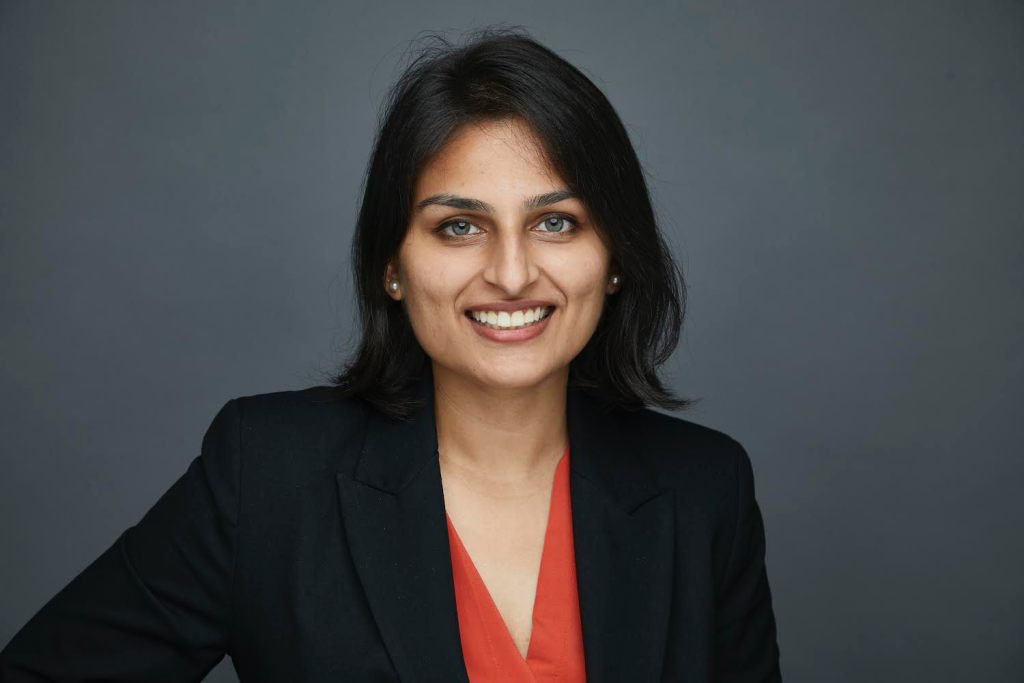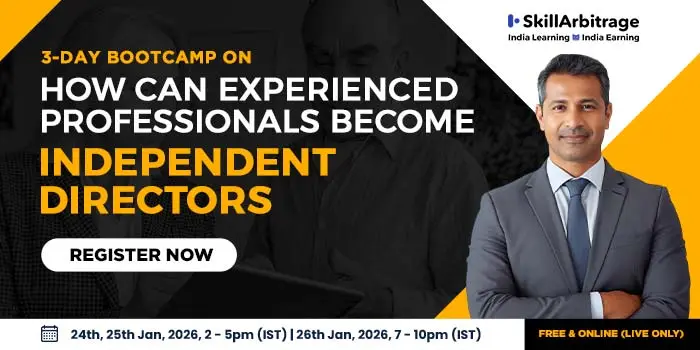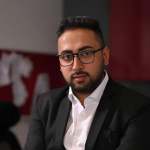This interview has been published by Anshi Mudgal and The SuperLawyer Team
Being dual-qualified in both India and New York is a remarkable achievement. What first inspired you to choose law as a career, and what motivated your decision to build an international practice?
Hailing from a family of prominent lawyers and businessmen, I have been exposed to the world of commercial and legal transactions since a very young age. My initial interest in law was sparked during family dinner conversations about how legal frameworks influence business strategy and drive corporate growth. Those early discussions made me curious about the intersection of law and commerce and ultimately motivated me to pursue a career in law. My interest in corporate law was primarily triggered after I participated in a corporate and securities law moot court competition in law school, where I conducted research on issues relating to insider trading and investment fraud. My constant endeavor to explore and navigate through the practical aspects and intricacies of commercial laws motivated me to pursue internships with corporate law teams at premier law firms and various multinational companies. As I delved deeper into the field, I was drawn to the dynamic, fast-paced world of mergers and acquisitions and private equity—areas where legal precision, business insight, and negotiation strategy converge. After graduation, I gained extensive transactional experience in the M&A practice at AZB & Partners, Mumbai and Trilegal, Mumbai. Qualifying in India gave me a strong foundation in company laws and exposure to a rapidly evolving corporate landscape. However, I was increasingly working on cross-border deals involving US investors, Delaware entities, and multi-jurisdictional structures. This motivated me to pursue an LL.M. in the USA, not only to deepen my understanding of the US law but also to add value in cross-border transactions. My goal has always been to operate at the intersection of jurisdictions, helping Indian companies scale internationally and advising US private equity players and venture capital firms on investments into emerging markets. New York is the financial capital of this world and home to all the big multi-national corporations, private equity firms, and financial institutions. International qualification in New York was a natural step towards building that kind of practice and seeking the desired global exposure. I wanted to be at the forefront of my practice, in the city where all big-ticket matters unfold. Being dual-qualified in both India and New York has been instrumental in shaping my legal career, particularly in corporate law, where cross-border transactions are increasingly the norm.
During law school, you completed 15 internships at some of India’s most prestigious law firms and multinational organizations. How did these diverse experiences shape your inclination towards corporate law, and what key lessons from those years continue to influence your professional approach today?
Completing 15 internships during law school gave me an unparalleled opportunity to explore different areas of law and understand how legal theory translates into practice. From interning in the corporate teams of top-tier corporate law firms to in-house legal teams at multinationals, each experience offered a unique perspective. Learning the practical aspects of transactional work while undertaking due diligence exercises and drafting agreements gave me a hands-on exposure into the professional work at law firms and a glance into the legal requirements of companies from a client’s perspective. While this industry demands long and hectic working hours with challenging work-life balance, I enjoyed the fast-paced and high-stakes environment, and more importantly, I was fascinated by how lawyers help structure complex transactions, negotiate and draft key transaction documents, and manage stakeholder expectations by aligning legal solutions with business goals. I still remember the lessons I learned from my mentor, a counsel at Trilegal that continue to guide my professional growth till date: (a) Adaptability: working across diverse teams, sectors, matters and legal issues taught me how to quickly assess context and contribute meaningfully, even with limited time or background in this fast-paced industry; (b) Precision: handling high-value transactions at law firms taught me early on that attention to detail isn’t just expected, it’s essential. It’s not limited to the role of a junior associate reviewing documents, but rather a discipline that must be upheld at every level of the deal team; and (c) Communication: be it drafting a memo or conducting a due diligence review, clarity in communication and collaboration as a team make the long working hours bearable and the work more enjoyable. Looking back, those years gave me more than just technical exposure, they solidified my decision to pursue a career in corporate law and helped me build the skillset, habits, mindset, and curiosity that I carry into every transaction even today.
At Columbia Law School, you not only pursued your LL.M. but also engaged deeply as a Research Assistant and took on leadership roles in student associations. How did these academic and co-curricular experiences expand your perspective on law and prepare you for a global career?
Pursuing my LL.M. at Columbia Law School was transformative, not only because of the world-class academic environment, but also due to the breadth of co-curricular opportunities that enriched my understanding of the law from a global and interdisciplinary perspective. The opportunity to learn from distinguished professors and engage with the vibrant community made it an enriching educational experience! As a Research Assistant to Professor Jeffery N. Gordon, I had the opportunity to work closely on comparative legal issues, including research on complex M&A issues and legal grey areas, which not only sharpened my analytical and research skills but also gave me insight into how legal systems address ambiguity across jurisdictions. This role honed my ability to approach legal challenges from both doctrinal and policy-based angles. Beyond the classroom and theoretical learning environment, I took on leadership roles in student associations, such as, Student Editor for the Columbia Journal of Asian Law and Secretary of the Columbia Corporate Responsibility Association. I was also an active member of the Columbia Business & Law Association and Columbia Law Women’s Association. Organizing and moderating panel discussions alongside legal scholars and engaging/ interacting with BigLaw partners broadened my perspective on the practice of law across different commercial environments that I now regularly witness in my cross-border practice. My proactive participation in co-curricular activities allowed me to collaborate with my peers from diverse legal backgrounds, exchange perspectives on global legal issues, and build meaningful connections within the international legal community. Together, these academic and extracurricular engagements at Columbia Law not only enhanced my cross-cultural exposure but also equipped me with the global mindset to thrive in the US legal fraternity. In a nutshell, choosing to study at Columbia was one of the best investments I’ve made, not just academically, but personally as well. While the LL.M. program offered world-class legal training and exposure to a truly global network, living in New York added a whole other layer to the experience. I took full advantage of what the city had to offer, catching Broadway shows, exploring museums, trying out food from around the world, and just soaking in the vibe and energy of the city.
Having worked with leading law firms before pursuing your international practice and master’s degree, what cultural and procedural differences stood out to you between legal systems? What were some things you had to learn, adapt, or even unlearn to navigate these differences effectively?
Having worked on M&A and private equity deals in both India and the USA, the differences were striking. While the skillset of a corporate lawyer is arguably transferable and is not jurisdiction specific, in India, deal-making often involves more regulatory oversight, heavily negotiated transaction documents, partly due to enforcement uncertainties and foreign investment restrictions (FDI). In contrast, US transactions are typically fast-paced, more standardized, and heavily focused on commercial outcomes / business goals through precise contract drafting. For instance, I worked on a cross-border transaction that involved a Delaware entity that wanted to acquire an Indian company as its wholly owned subsidiary. As part of the transaction, I realized that Delaware enjoys significantly greater flexibility by providing the board of directors the discretion to govern the entity, whereas, in India, the corporate governance of an entity is more prescriptive and compliance-heavy with stricter rules on matters like related-party transactions, board composition, and structuring. While these legal safeguards in India serve important governance goals, they can sometimes limit the structuring creativity available in complex deals. Culturally, I had to adapt from a well-defined organizational structure in Indian law firms to a more collaborative, client-facing role in the USA, where lawyers early-on in their careers are expected to engage more directly and strategically with the client. I also noticed a shift from providing detailed legal analysis to offering simple, concise (to the point), business-oriented advice, which is critical in the US private equity and M&A space. This transition pushed me to unlearn overly cautious habits and instead focus on practical, deal-driven lawyering, a mindset that’s essential in global transactional work. One of the most appreciated cultural differences I experienced is that the “open door policy” in US law firms is genuinely practiced and not just stated. There’s a strong emphasis on accessibility, mentorship, and collaboration, regardless of hierarchy. Junior lawyers are encouraged to ask questions, contribute ideas, and engage directly with senior associates, partners and even clients, which fosters both learning and confidence.
In your current role, you represent private equity firms, venture companies, and strategic investors in complex cross-border transactions. What have been the most rewarding aspects of working on such high-value deals, and how do you approach the challenge of reconciling multiple statutes and jurisdictions?
I am currently a mid-level associate at Goodwin Procter, LLP, New York, focusing my practice on domestic and cross-border mergers and acquisitions, specifically leveraged buyouts, private equity transactions, and venture capital investments. Working on complex cross-border transactions has been incredibly rewarding, both intellectually and professionally. The most fulfilling aspect is helping clients navigate high-stakes decisions that directly shape and impact their business growth. The best part about my work is that it never gets boring! Whether it’s representing private equity firms, venture-backed companies, or strategic investors, each transaction presents a unique set of challenges and opportunities. Being at the intersection of law, business and strategy is both challenging and energizing. There is a thrill in closing complex M&A deals. One of the key complexities is managing/ coordinating cross-border work and reconciling multiple legal regimes, especially when deal terms, corporate governance standards, or enforceability vary significantly across jurisdictions. We approach this by collaborating closely with key transaction stakeholders such as RWI insurer, opposing counsel, local counsel and by ensuring alignment on key provisions like representations and warranties, indemnities, and shareholder exit rights across transaction documents. Driving projects by setting timelines for internal workstream, determining and planning internal deliverables, and leading team calls to meet deadlines to increase efficiencies helps manage risk and maintain deal momentum across borders.
Qualifying as a New York lawyer is no small feat. How did you prepare for the bar exam, and how has this qualification added value to your practice? What advice would you offer law students and young lawyers aspiring to clear the exam and pursue international opportunities?
Preparing for the New York Bar Exam was intense, especially coming from a non-US legal background. While I recall it as being a traumatic experience, I did learn a lot along the way! I approached it with a structured plan and a strict routine. I enrolled in a bar prep course, followed a study schedule, and focused heavily on practicing questions and timed essays to build both speed and familiarity with the exam format. I mostly focused on practicing past exam questions because they really helped me get a solid grasp of the legal concepts and figure out how to manage my time during the test. Consistency and discipline were key. I used to wake up early to read through the study modules and watch all the videos and then spend the whole day practicing questions. This helped me understand and apply the legal concepts without the need to cram them up. Qualifying as a New York attorney not only adds credibility in one’s practice in the USA but is also a requirement for most BigLaw firms in making their decision to hire you to practice law in New York. As a New York qualified attorney, I am able to advise on US legal aspects directly, particularly in deals involving New York law-governed documents, which are common in my area of work. My advice is to treat the bar exam like a full-time job for those one to two months. Focus on understanding the test, its format/ structure and not just the law. No matter which bar prep course you choose, practice, practice and practice! This is very important. You don’t need to ace the exam (no extra points for high scorers) – you only need to pass it! Follow a study routine which works best for you but stick to it. There might be days when you may lack the motivation to study or feel burnt out but believe me, keep at it, be positive and put in the hard work because it definitely pays off!
With such elaborate professional responsibilities and a demanding work schedule, how do you strike a balance between your personal and professional life? What strategies or habits help you manage it all effectively?
Balancing a demanding career in corporate law with personal life is definitely a big challenge! However, with time and experience I’ve found that setting clear boundaries and prioritizing both work and downtime is essential. While my law firm does strongly emphasis on physical and mental wellbeing by organizing retreats, wellness days and initiating activities to relieve work stress etc. I make it a point to schedule focused work hours and then fully disconnect during personal time, whether that’s spending time with family, exercising, or pursuing hobbies. I believe that following a proper routine and managing time consciously are key habits. I endeavor to stay organized and avoid burnout by using my vacation days to travel, which I deeply enjoy. I plan my weekends ahead and try to squeeze in activities which I really want to do such as watching a Broadway show or even going on hikes! Even when I get very little time for myself during rough days or intense work phases (when we are signing or closing a transaction), I try to do something that makes me feel calm and relaxed. I listen to music, play the piano or read a novel. I try to exercise regularly, stay hydrated and remain active during the day. Ultimately, I have learnt from my experience that work life balance is less about reaching a perfect equilibrium every day but more about putting in consistent effort to recharge and stay mentally fresh, which ultimately makes me more productive professionally and personally.
Looking back at your journey, what advice would you give to students and young lawyers aspiring to build an international career like yours? Are there specific resources, skills, or values you recommend they focus on to thrive in this path?
Looking back, I’d say building an international legal career requires a combination of strong technical skills, cultural curiosity, and adaptability. Moving to another jurisdiction and pressing the restart button in your professional life is not easy. One should have an open mind to adopt change and the strength to address any unforeseen challenges. It is important to develop a global mindset: stay curious about different legal systems, business cultures, and geopolitical trends. First and foremost, young lawyers still in law school should gain internship experience early on to understand the practical side of the legal profession. It’s essential to go beyond textbooks and see how law operates in the real world. A strong resume with good academic performance, complemented by diverse co-curricular and extracurricular activities, can significantly strengthen an application to study abroad. During my time in law school, I was an active mooter, and I continue to stay engaged with the community by judging some of the most prestigious moot court competitions globally. For those aiming to pursue an LL.M. in the US especially in corporate law, I strongly recommend gaining some hands-on experience in M&A or private equity transactions before applying. The LL.M. is a significant academic and financial investment, and it’s important to approach it with clear intent and direction. Students should not come with the sole aim of landing a job. The LL.M. is also an opportunity to grow as a lawyer, broaden your perspective, and experience true global exposure. Along the way, networking is absolutely key. Building meaningful and genuine relationships with alumni, law firm professionals, professors, and peers can open doors and provide lasting value well beyond the program. Finally, I would say: cultivate resilience and humility. The path can be challenging, especially as you navigate cultural, academic, and professional differences. But those who remain adaptable, open-minded, and solution-oriented will not only succeed but they will thrive.
Get in touch with Nayanika Ruia –




